Not With a Bang, But a Whimper
This past week, Tucker Carlson travelled to Moscow, Russia to have a sit-down interview with President Vladimir Putin. Before the almost two hour interview was conducted, Tucker Carlson explained his motives for being in Russia – a now pariah state in the Western mind – as trying to get the “other side” of the story.
After all, it has been almost two years since the greater war in Ukraine began, with the invasion of Russian forces in February of 2021. Yet no media outlet in the West has either sought, or been bothered to get a deeper understanding of the Russian motivation, instead painting the conflict with broad strokes as a Marvel-esque “good guys against bad guys” situation.
Credit where credit is due, Carlson is doing the job that most journalists these days refuse to do – report, and let the audience make up their mind. But what became very apparent from the offset of the interview conducted on the evening of 7th of February was just how unexpectedly out of his element Tucker Carlson appeared to be.
After the now infamous 45-minute long history lesson of Russian-Ukrainian relations going back to the eighth century, Tucker Carlson found himself getting overwhelmed with the offload of (possibly far-too-detailed) background context of the war and its causes.
This, for many, seemed to be shocking revelations.
“We didn’t know a world leader could be so detailed with historical knowledge!”
“He didn’t even need notes, meanwhile our leaders can barely read off of a teleprompter! Shameful!”
But Putin’s narrative and historical tangent shouldn’t come as a surprise, as it is the same reasons he gave in a published essay On the Historical Unity of Russians and Ukrainians which justified his reasons for the invasion and interest in bringing Ukraine (or at the very least, parts of Eastern and Southern Ukraine) into the Russian Federation.
Hardly new, shocking, or insightful – it’s the same point he has been making, very publicly, for the last two years – of course always ignored, filtered, or taken out of context by the Western news media.
When pressed to talk about NATO expansion being a possible provocation of Russia’s actions, Putin, once again, stuck to the same story he has been telling the world for the better part of a decade.
Russia is willing to cooperate with the West, and is even willing to allow an independent Ukrainian state partner with the EU and become more friendly with Western Europe and America, as long as Russia’s strategic and security interests are respected and cooperated with.
This was why for decades prior to the Maidan, Russia had not escalated provocations – beyond a few strongly worded statements – with NATO despite NATO expansion beyond Germany into the Baltics and Balkans.
Our leadership – more specifically – the warhawks and ideologues who make up the body of the US State Department and inner-mechanisms of Washington D.C. body-politic who are heavily benefiting from, and invested in the superfluous military contacts and deals, have had no interest in playing ball – even after the Cold War and the fall of the Communism in the Eastern Bloc.
Putin suggested that it wasn’t that he had poor relations with elected leaders, but rather that any time he had approached NATO, American or European leaders with opportunities for cooperation, it was always received enthusiastically, but then quickly shut-down by the “expert” teams that inform Western elected officials.
Perhaps this is just posturing and expert narrative-building that Putin tells himself to sleep better at night, and wants to manipulate the narrative to better suit his own image as a victim of the Western machine.
But speaking as a Westerner, and as someone who has seen the actions of elected governments of both left and right-leaning factions, has anything our governments done in the last thirty years, especially in the realm of foreign policy, actually benefited the world or made it better?
The Iraq War? We manufactured a false narrative about weapons of mass destruction, and Saddam Hussein working with Al-Qaeda in order to invade. We left millions dead, radicalised millions more to become vehemently anti-West, and left the vacuum for ISIS to grow in the wake of our “victory”.
The deposing of Gaddafi in Libya? We left a nation in ruins, which has now become a hotbed for open-air slave-trading, terrorism – and we now have no buffer state between Africa and the Mediterranean Sea, feeding the immigration problems of the last two decades.
The War in Afghanistan? Not only did we have no real long-term objective being there, we helped fuel the opioid crisis by encouraging, and protecting the cultivation of poppy – which would wind its way into the US through the illegal drug trade, leading millions of Americans to be hooked on literal poison. Not only this, once we left, the government we installed collapsed like a warm Easter egg and the Taliban became a regional power by seizing the weapons the U.S. military had left behind.
The Syrian Civil War? We armed “rebel” groups to topple the Assad regime, leaving a country devastated, millions of people displaced, and causing the refugee crisis in the 2010s.
I could go on and on, these are just a few of the glaring examples – but how has any of our “democracy building” fared? Did we build democracy, or did we just ruin perfectly stable countries because Washington policymakers were so convinced of their own excellence and patting themselves on the back for “safeguarding democracy” that they couldn’t see the looming disasters that would result from their insane actions?
When our reasons for going to war and causing untold levels of devastation have been as vague as “protecting/promoting/building democracy” for every single one of these conflicts, I’m not surprised that when a world leader outlines very different, very detailed reasons as to why he wants to conduct military action – analysts and intellectuals are hardly able to pick up their jaws from the floor.
Despite the fact that this has always been the way the world has always worked, it just goes to show how removed Western governments and foreign policy decision makers have become from reality.
Within a century and a half, we went from the brilliance of Bismark to the nonsensical politicking of Nuland. A truly astounding fall from grace.
Coming back to Ukraine, we had peace-talks and negotiations ready to go in Istanbul, which most likely would have resulted in an end to the bloodshed, and perhaps a North Korea type DMZ along the Dnieper that may not have made either country happy but would’ve at least established a firm red-line that neither party could justifiably cross.
But that was stifled by former Prime Minister Boris Johnson, who I assume was working at the behest of Washington and seeking his own Churchill moment, who instead encouraged Zelensky and the Ukrainian government to “fight on!”.
Almost an entire generation of young Ukrainian men have been wiped out, millions have fled the country as refugees, and it has become a meat-grinding war of attrition – one that the Ukrainians cannot possibly win by their sheer lack of numbers, but instead they will be slowly grinded down into submission, regardless of how many arms and funds are sent by the West.
All of this, because we have been refusing to sit-down, have a little sense of humility in the changing world we live in, and compromise at any level.
We have been force-fed this phoney narrative that Vladimir Putin is this seething maniac, frothing at the mouth rabidly because he needs this war, and he needs to win it otherwise his entire rule is delegitimised, and his iron fist over Russia be brought down – that all we need to do is keep fighting and we will win! The good guys always win, right?
But Putin’s conduct and body-language in the Tucker Carlson interview spoke very differently to the narrative we have been fed.
This is not someone who is on edge about this conflict, nor feeling as if his administration and rule over Russia is under serious threat. His body-language was as if this whole conflict was simply just another day at the office – that he is willing to negotiate to end these hostilities, but if not all he has to do is wait.
And who can blame him for this certain calm confidence that he carries?
At the same time the Carlson interview was being broadcast on X, President Biden held a press conference in the White House to assure the press and general public that his brain hasn’t turned into mashed potatoes – in the same speech he said that President Assisi of Mexico would allow humanitarian aid into Palestine. Reassuring, of course.
While the United States, Great Britain, and the broader Western world are all on-track for domestic disaster – with severe economic inflation, political and social rifts that have turned people against each other and their governments, and self-imposed demographic suicide – why would Putin need to worry at all about what the West does?
All he has to do is wait – and he has the growing world of the East, namely India and China, that will continue to trade and maintain relations with Russia, and not seek to harass or get involved in Russian domestic affairs.
Ukraine is not the “last stand” of the West as it has been made out to be. I think you’ll be hard-pressed to find anyone in the Western world who is actually enthusiastic about the idea of dying in the mud and snow-ridden trenches of Donetsk and Luhansk to defend… foreign democracy? If that even is what we are defending, after all, rival parties have been banned in the Rada.
No. Frankly, the United States is on the path to isolation one way or another. It will likely be because the domestic situation would become so bad that it has no other choice but to focus its efforts inwardly to prevent complete national fracture.
If push really comes to shove, even the warhawks in Washington would rather pull out from escalating into larger hostilities with a nation that can match the United States in terms of nuclear firepower. Having already made their billions of dollars in weapons contracts, what is the benefit of further plunging the world into a war which will surely lead to mass devastation, leaving no possible markets to sell their goods.
And when the United States withdraws much of its interest from Europe, where will that leave the EU?
Without American energy, and without American guarantees of protection, Europe will have to find its own ways of maintaining itself – which will be made all the more difficult since the position of the EU in regard to Russia, and the Russian supply of energy has been to sanction it and stop it, with no real viable alternative.
This will only exacerbate the pre-existing issues in Europe – when quality of life is severely lessened, and basic needs like warm homes in cold winters and steady food supplies are no longer guaranteed, the masses will lash out, first at each other, and eventually at the politicians and governments who led to this disastrous eventuality.
This is what the war has become. An international game of chicken, with one side holding a significant home-turf advantage. Sanctions have not worked, but instead pushed Russia to internally change to become less dependent on trading in US dollars and looking for foreign alternatives.
Funding and arming the Ukrainians has meant that a war that could’ve been over in a matter of weeks and months has now grinded into a war that will last for years, until the front lines simply cannot be maintained by lack of numbers. The humanitarian disaster that could’ve been averted almost a decade ago has left one of the largest countries in Europe devastated, decimated, and tens of millions dead and displaced – not just soldiers, but civilians.
Russia has been pushed further to work with other foreign global competitors like China and India, rather than European neighbours – both nations having some of the largest population centres on Earth. Pax Americana is dead and buried, never to return in our lifetimes – it was killed violently by the very people who were put in charge to maintain it. A sort of twisted ironic suicide.
One of the most important points brought up in the Tucker Carlson interview was Putin’s outlook on the changing world. He has seen the winds of influence and importance change from the West to the East, and he has adapted accordingly.
When discussing the opportunity to bring the conflict to an end via negotiating a peace deal with Ukraine (i.e. the United States) he stated that there were avenues to do so with dignity, that will allow the United States to have the PR victory it so desperately craves to save face from ultimately wasted efforts.
The avenue is there, and if I was one of the embedded decision-makers in Washington I would take a mutually beneficial deal as soon as possible – as the alternative will not be escalation into a hot war, but enduring diminishment of both hard and soft power in the continent, as European states begin to understand that they cannot rely on the United States to have their best interests at heart, or make sound policy decisions on their behalf – which is the ultimate function of NATO.
As T.S. Eliot once wrote:
“This is the way the world ends – not with a bang, but a whimper”.
The world we once knew is coming to an end, this much is overwhelmingly clear.
It is not our current flock of leaders or decision-makers – but rather it is up to us, the next generation of individuals and standard-bearers whether we will adapt to the changing world and rekindle the fire into something that endures, or whether we will let our civilization fade into obscurity and extinguish, never to return.
While we may not have learned anything all that new or groundbreaking from the Tucker Carlson interview with Vladimir Putin, I think it serves a greater purpose than a simple “gotcha” to Western journalism or the current political class.
It is an insight into how the “other side” thinks of us, of our future, and our decline. We ought to wise up, prepare for the long, difficult road ahead, and ensure that the only thing that actually “declines” is the stupidity of our leadership and the influence of the unelected gaggle of fools that believe they can put a halt to the motions of the changing world we find ourselves in.

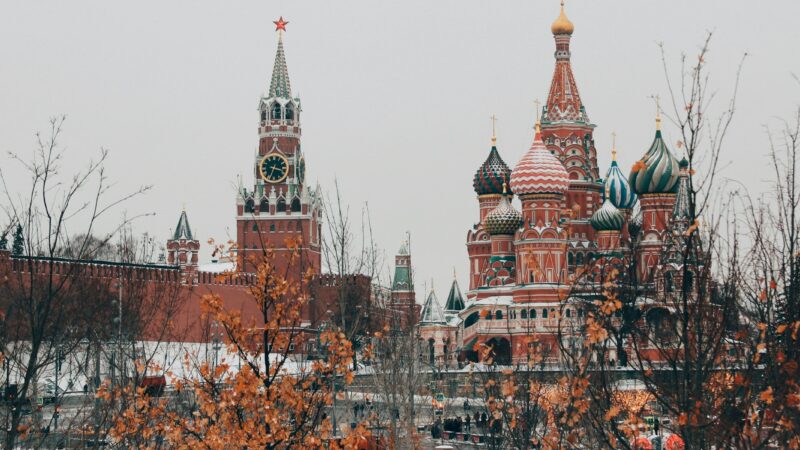

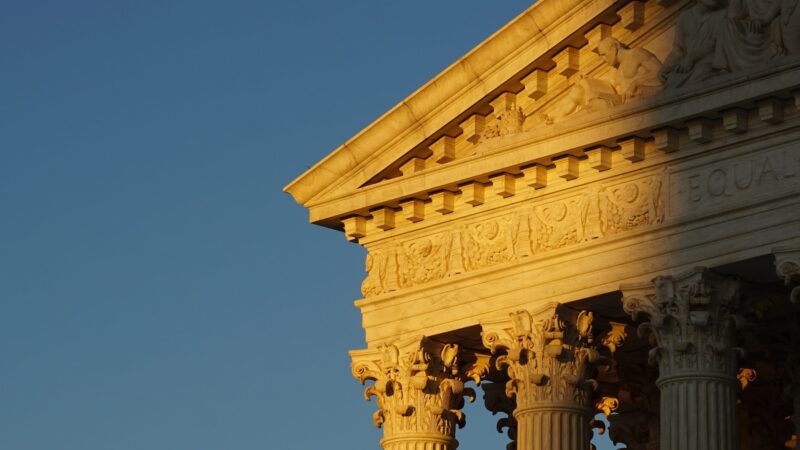

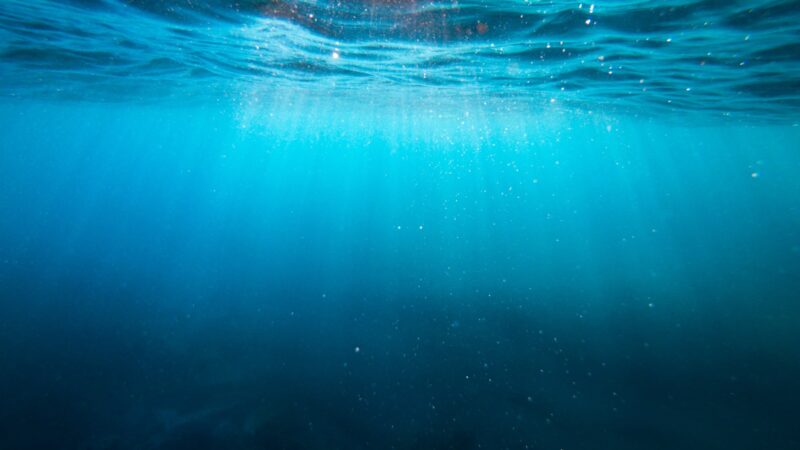
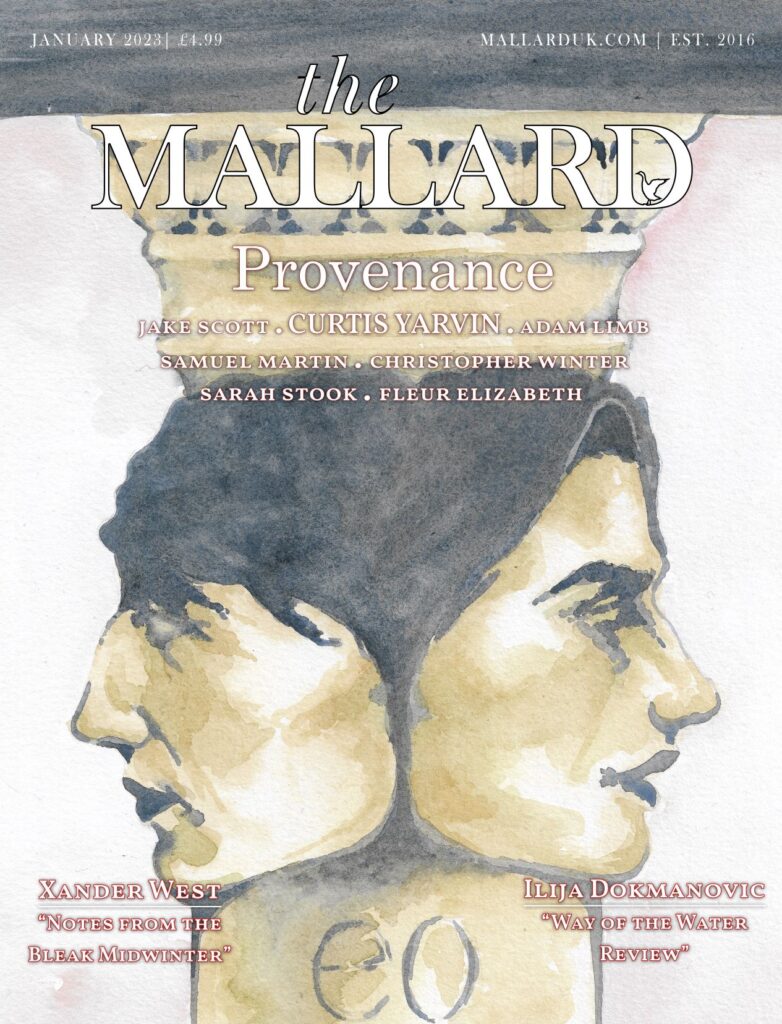
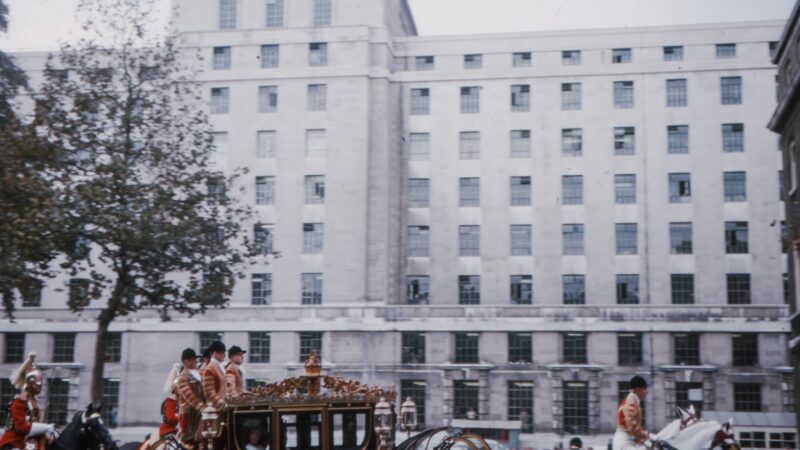
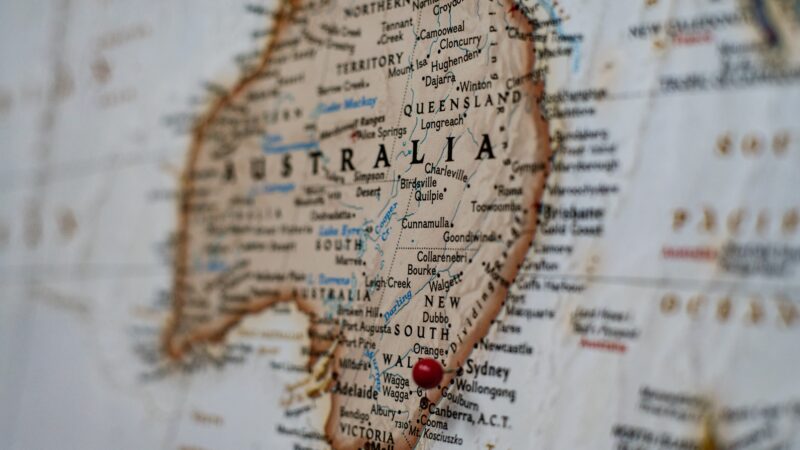
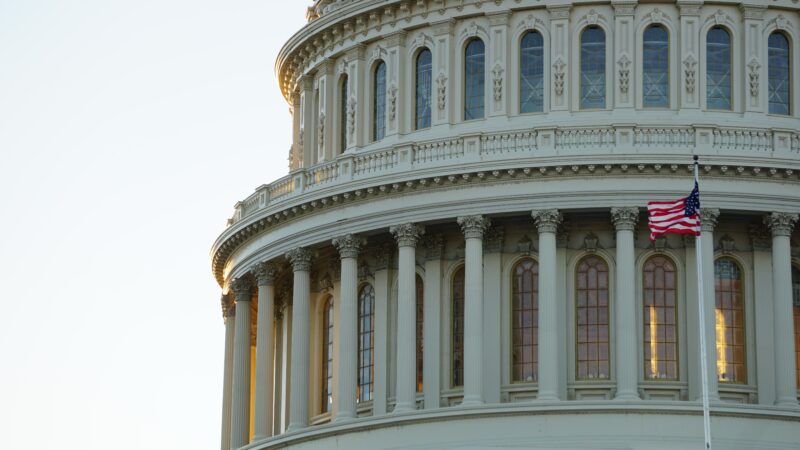
With Friends Like These, Who Needs Enemies?
Several months have passed since Hamas orchestrated the surprise attacks against Israel in the notorious and brutal events of October 7th, one of the bloodiest days in Israel’s modern history, with over a thousand people killed or kidnapped by Hamas – consequently launching the war in Gaza, and the prolonged campaign of Netenyahu’s government against Hamas and its supporters.
Needless to say, the Israeli response to such an outrageous and devastating attack against civilians has been swift. Combined strategic responses of aerial bombardments, drone strikes, and ground forces swelling into Gaza have been unrelenting, like a jackhammer.
Since October 7th, and the resulting war that followed, social media has erupted with images and videos coming out of Gaza detailing the quite dire humanitarian crisis currently occurring. It’s hard to estimate how many civilians have been killed during the war, but it is likely within the tens of thousands, with more and more adding to the body count as each day passes.
The position of Gaza has also made the situation even more difficult to control, as civilian aid is becoming harder and harder to access through narrow strategic corridors and lack of proper organization and distribution. Vital resources like food, water, and medicine aren’t ending up in the hands of the people that need it the most – if the bombs and the bullets don’t kill the people on the ground, the lack of resources will.
The shock and fury felt across the world after being confronted with this crisis has become a key issue in the West, with countless organized protests at universities and in the streets of capital cities, all demanding that Western nations stop funding the Israelis as they continue their military campaign in the heart of Gaza. This pro-Palestine movement, which is quite broadly supported by those with left-leaning ideologies and intersectionalists, has become an impressive political bloc – especially since it is an election year for both Great Britain and the United States.
Which is frankly quite funny, as most of the people in the pro-Palestine camp, chanting the mantras and songs of Hamas would be shunned by the very same groups they feel the need to protect. In fact, many already have.
Meanwhile, especially amongst “Christian conservatives” in the media and online, there has seemingly been a blank check of support given towards Israel – especially Netenyahu and his Likud government.
After all, Hamas is a terrorist organization, and anything that stops Islamic fundamentalist terror is worth supporting, right? We simply have a moral duty to support Israel, regardless of how blatantly horrific the situation is on the ground. Tax dollars and civilian casualties are a small price to pay for FREEDOM and the protection of “Judeo-Christian” values.
It’s exhausting, but no matter which way you look at it, this will be a defining political issue for the next decade, if not even longer.
And, as always, instead of being able to approach the issue with any level of nuance or recognition that both sides in this conflict seem to be as equally awful and hostile to us as they are to each other, we will once again be put into this binary choice of being “with” or “against” either side. The arguments will be circular, and the cycle of destruction will continue while only a handful of people end up benefiting – mainly weapons contractors and political donor groups.
Before I jump into the beef of this piece, I want to express my outright condemnation of terrorism and terror groups. I feel as if I am obliged – although I think it’s entirely self-evident – to say this, because undoubtedly there will be those who take what I have to say next as an endorsement of Hamas or other fundamentalist Islamic radicals in their war against the State of Israel.
It isn’t. Read the last two paragraphs again if you are confused about where I stand on this issue.
So now that terrorism has been condemned, let’s continue to condemn and reevaluate our unconditional alliance with Israel; because frankly their accusations against Hamas and Palestine is a case of the pot calling the kettle black.
Don’t believe me? I doubt many have had the chance to delve deep into this issue, so let’s start with a little history lesson, shall we?
To understand the Israel of today, you don’t just go back to the partition of Palestine and founding of the State of Israel in 1947, you have to go back a little further in the century, back when the land we now know as Israel was a part of the Ottoman Empire.
Back at the start of the 20th century, when the world was rapidly changing, and revolutionary attitudes were spreading like wildfires, small groups of militias and rebels were beginning to emerge in Palestine.
“In fire and blood did Judea fall; in blood and fire Judea shall rise” was the motto of the group known as Bar-Giora (later “Hashomer”).
Originally this paramilitary organization’s goal was to defend Jewish settlements in the Ottoman Empire from attacks by local Arab populations.
Seems noble enough at first glance, and perhaps it was in intention, but this paramilitary organization, which was led by young, often Marxist-aligned rebels, did not just intend to play defense, but rather grow strong enough and large enough that they could create an effective offense against their Arab neighbors. And judging by their slogan, one can piece together that they weren’t exactly willing to compromise or negotiate peacefully in order to fulfill their goals of establishing permanent Jewish settlements in the region.
After World War One, as the British took control of Palestine, thus leading many members of Bar-Giora/Hashomer to join the Jewish Legion of the British Army in Palestine, as well as assuming positions in the local, British-backed law enforcement.
During the Arab riots of 1920-21, many Jewish settlements and Palestinian Jews suffered attacks at the hands of Palestinian Muslims. Believing that the British were unwilling, or unable, to confront the Muslim majority, these now formally-trained soldiers splintered off and founded “Haganah”.
Haganah went from being a rather unorganized militia to a funded, armed, and large underground army within a matter of years, and would serve as the foundation for what we see as the IDF today.
Again, while noble in intentions – to protect Jewish settlements – you’re only as good as the bad apples in the basket. It didn’t take long for splinter groups to form out of Haganah, namely Irgun, Palmach, and Lehi.
These groups all had a common resentment towards the British authorities – especially because of the White Paper declarations in 1922 and 1939 that sought to limit the amount of Jewish Europeans emigrating to Palestine, in order to not disrupt relations with the local Palestinians and allow for a slow-bleed assimilation of Jews into the region.
An idealistic approach, and perhaps a fool’s venture – but given the current state of things in the region, I’m sure the policymakers of the Empire had good reason to do so.
Palmach was a more formidable armed force, which was allied with the British in WWII and fought against Axis powers in the region. Eventually, after the war, the British ordered that the independent Palmach was disbanded, but operations simply moved underground, and Palmach found a new enemy with the British Mandate – they conducted several operations, including bridge bombings and night-time raids, against British assets in the region – all in response to the White Paper policies.
Irgun started in the late 1930’s as an offshoot of Haganah, and much like Haganah was initially a defensive force. However, after a prolonged period of Arab attacks and Irgun-conducted reprisals, the organization became more focused on arming, training, and conducting operations against anyone deemed a threat – this included the British authorities, who were trying to control the anarchy and fighting that was constantly breaking out in Palestine between factions of Jews and Arabs.
Lehi was founded by Yair Stern as a splinter of Irgun, and was composed of the more radical and violent Zionists of the time – some of whom even sought alliances with Hitler and Mussolini as they saw the British as a larger threat to their existence. They were self-described terrorists, as outlined in their underground newspaper, He Khazit;
Charming mantra, to say the least.
Now, let’s take a look at a couple of notable examples of Zionist terrorism at the time, such as the King David Hotel Bombing.
The attack, which took place in July 1946, was carried out because the hotel was the headquarters of the central offices of the British Mandatory authorities of Palestine, as well as the British Army in the region. The bombing was in retaliation of the British conducting search and seizure operations of arms against the Jewish Agency in Palestine and to stop Palmach sabotage operations.
This attack claimed the lives of 91 people – Arabs, Jews, and indeed Britons – as well as injuring 46 others.
Another example, shall we?
The Deir Yassin Massacre – April 9th, 1948. Igrun and Lehi fighters raided the village of Deir Yassin in the morning, killing civilians with hand grenades and guns, indiscriminately. Around 110 villagers, including women and children were killed in the attack – some of whom were kidnapped and paraded in the streets of West Jerusalem before being executed.The village was then seized, the rest of the villagers expelled, and the village was renamed Givat Shaul.
How about political assassinations?
Walter Guinness, The Lord Moyne, was shot and killed in Cairo along with his chauffeur on the 6th of November 1944 by two members of the Lehi terrorist organization. Guinness was targeted as he was seen as responsible for Britain’s policy in Palestine, and was accused of being sympathetic to the Arabs.
Or, Folke Bernadotte – Swedish diplomat and a man who almost single handedly negotiated the release of 450 Danish Jews and thousands of other prisoners from the Theresienstadt Concentration Camp during WWII. Folke was appointed to be the UN Security Council’s mediator for the Arab-Israeli conflict, and was shot and killed by Lehi members while conducting his duties to end the conflict.
There are many, many more examples of explicit acts of terrorism, targeted assassinations, kidnappings, and other quite ghastly actions conducted by these radical Zionist groups, but now I think it would be constructive to see the legacy that these groups left, and a few notable Israelis were sympathetic, or a part of these organizations.
After the assassination of Folke Bernadotte, Lehi was formally disbanded and its members were arrested by the now established State of Israel. Happy ending, right? Wrong!
Lehi members were given a general amnesty right before the 1949 election, and in 1980 the Israeli government commissioned a military decoration named after the group, called the Lehi Ribbon, an “award for activity in the struggle for the establishment of Israel”.
Irgun, the group responsible for the King David Hotel bombing, was absorbed into the newly created IDF in 1948. While the paramilitary organization was formally disbanded in 1949, its members would later become the founders of the Herut Party – Herut would later merge into the Likud Party, one of the largest political parties in Israel, and the party that currently holds power.
David Ben-Gurion, 1st Prime Minister of Israel, supported the bombing of the King David Hotel, although later he publicly condemned it. While Ben-Gurion was a leader of the Jewish Agency, he did little to help the British in stopping the operations of Lehi and Irgun.
Menachem Begin, 6th Prime Minister of Israel, was an active member of Irgun, and became a commander of the terrorist organization in 1943. He was the founder of the Herut Party in 1948 (which later became known as “Likud”).
Yitzhak Shamir, 7th Prime Minister of Israel, was a leader of the Lehi terrorist group during its operational years. Shamir was responsible for plotting the assassination of Lord Moyne, and of Folke Bernadotte during his tenure as the leader of Lehi. In 1955, he joined Mossad, where he orchestrated Operation Damocles – targeted assassination of German rocket scientists assisting Egypt’s missile program.
Fascinating, to say the least. Some absolutely dreadful people, who ended up in the highest office of their country, and, somehow, allied with Britain, the very power they sought to expel from their nation. I can only imagine how awkward those Israeli meetings with the various Prime Ministers of the UK must have been – that is, of course, if those Prime Ministers had actually known or cared about what crimes these people were responsible for, and the British blood that they shed in order to achieve their goals.
Because, fundamentally, this nation is hostile. Not only to its immediate neighbors in the Middle East, but to us in the West as well.
Does anyone in their right mind think that almost a century of ideology, propaganda and leadership by vehemently anti-British, and by extension anti-Western political figureheads and former terrorists somehow is just washed away with time?
It is ludicrous that somehow, the political party that is in power, which was founded by the very terrorists who conspired and successfully carried out attacks against the British, has simply forgotten or somehow changed its foundational core values.
These roots run deep – and by observing the current administration of the Israeli government, we can see that the most important positions are occupied by hardcore, uncompromising Zionists who undoubtedly share the same values as their predecessors.
If this was an issue which was only relegated to the Middle East, I doubt anyone in the West would need to care. But unfortunately, due to the billions of dollars of donations from Israeli-aligned political groups, the billions of dollars of weapons deals done with Israel, and the overindulgent culture of philo-Semitism in Western governments, we in the West are unfortunately tethered to this country, its issues, and the repetitive cycle of destruction and death that it generates.
We are told that we have a moral obligation to support Israel, out of vague notions of protecting the “only functional democracy in the Middle East”, or through beating the drum of Holocaust guilt that, somehow, if we don’t stand by Israel and its campaigns of “self-determination” (i.e. constant expansion) we are somehow antisemites and no better than the Nazis.
Our governments even flirt with, if not having already passed legislation, that will limit our free speech in our countries if we dare criticize the Israelis for taking their war and destruction against a severely outgunned Palestine as being a little too far. The United States House just recently passed a bill that would severely curtail the ability to criticize Israel and its actions, under the guise of trying to stop anti-semitism on college campuses.
Especially on the cusp of important elections in the UK and the United States, how can any patriotic, nationally-minded voter bring themselves to the ballot box and vote for politicians and parties that are so explicitly Zionist that they take their mandatory trip to the Wailing Wall as soon as they are elected for a photo op and a corny declaration of allegiance to a foreign nation?
So here we are. Our fates tied to the ambitions of a small nation in the desert. While they continue to expand violently and push outward, as was the vision of the founders of their country, we in the West are meant to just sit back, and fork over our tax dollars to let it happen over some very unclear obligation that we are told we have.
Israel has demonstrated that it is only willing to participate in a friendship with the West that is one-sided; where they reap the benefits of lucrative weapons deals and endless political support while giving no concessions or compromise in return. Outwardly showing resentment to the hand that feeds it when something as simple as a ceasefire is asked for so that the humanitarian crisis on the ground can be properly dealt with.
If we are to look at this in a completely pragmatic sense in regards to foreign policy, we gain nothing from continuing to unconditionally support a historically hostile entity, and we lose nothing if we are to cut these imaginary ties and treat them as we treat any other nation.
There’s an old saying, “With friends like these, who needs enemies?”.
Thankfully, especially amongst younger voters – both liberal and conservative – many are already starting to reevaluate that unquestioning love for a foreign nation that has a long and violent history towards its current allies.
Photo Credit.